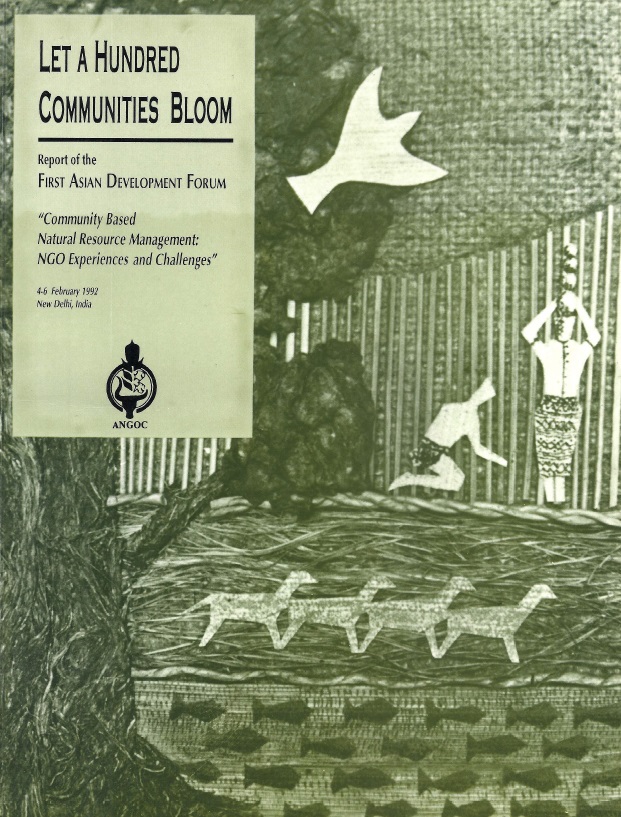
The increasing marginalization of people and unabated environmental degradation have spurred the growth of non-government organizations/NGOs in the Asian region. The 1980s saw increased networking efforts of NGOs as a response to the complex problems of development and environment.At the regional level, through the initiative of the Asian NGO Coalition (ANGOC), Asian NGOs have started the process of discussions regarding common issues of urgent concern. NGOs are challenging the growth-oriented policies of Asian governments and donor institutions that contribute to poverty and wanton environmental degradation.
Thus, ANGOC initiated a five-year annual activity, the Asian Development Forum is envisioned to become the Asian Grassroots Voice to the international community and a starting point for South/South and South/North dialogue. “Food and Freedom, Jobs and Justice, Land and Labor: Towards as Asian Development Agenda for the Year 2000” is the overall theme of the five-year Forum, with specific themes chosen each year to highlight critical development issues.
This report “Let A Hundred Communities Bloom” highlights the major presentation and discussions of the First Asian Development Forum (04-06 February 1992; New Delhi, India) under the theme was Community Based Natural Resource Management: NGO Experiences and Challenges. Participants noted that NGOs must work toward making communities aware of their rights and responsibilities so that communities may truly assert themselves. Without this kind of empowerment, the vision of communities to be strong enough as a countervailing power to the State will be much harder and will take longer to attain.
